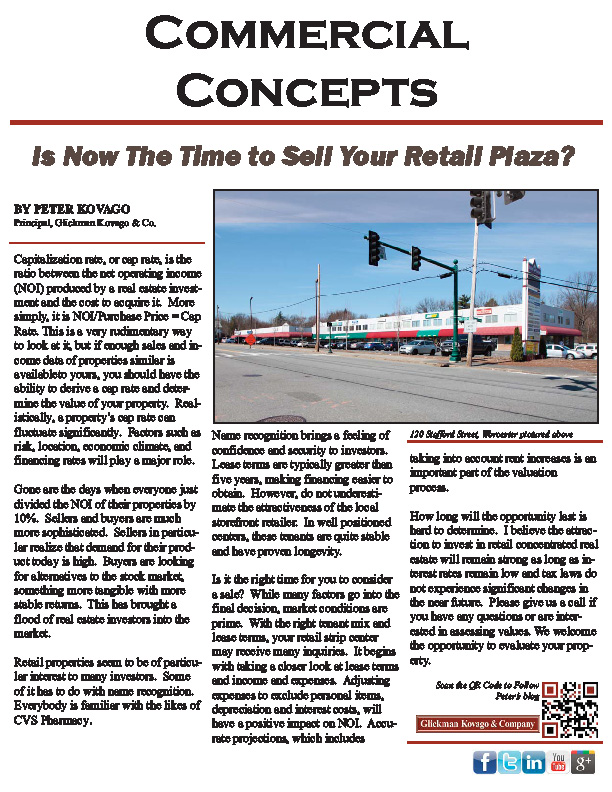Capitalization rate, or cap rate, is the ratio between the net operating income (NOI) produced by a real estate investment and the cost to acquire it. More simply, it is NOI/Purchase Price = Cap Rate. This is a very rudimentary way to look at it, but if enough sales and income data of properties similar is available to yours, you should have the ability to derive a cap rate and determine the value of your property. Realistically, a property's cap rate can fluctuate significantly. Factors such as risk, location, economic climate, and financing rates will play a major role.
Gone are the days when everyone just divided the NOI of their properties by 10%. Sellers and buyers are much more sophisticated. Sellers in particular realize that demand for their product today is high. Buyers are looking for alternatives to the stock market, something more tangible with more stable returns. This has brought a flood of real estate investors into the market.
Retail properties seem to be of particular interest to many investors. Some of it has to do with name recognition. Everybody is familiar with the likes of CVS Pharmacy.
Name recognition brings a feeling of confidence and security to investors. Lease terms are typically greater than five years, making financing easier to obtain. However, do not underestimate the attractiveness of the local storefront retailer. In well positioned centers, these tenants are quite stable and have proven longevity.
Is it the right time for you to consider a sale? While many factors go into the final decision, market conditions are prime. With the right tenant mix and lease terms, your retail strip center may receive many inquiries. It begins with taking a closer look at lease terms and income and expenses. Adjusting expenses to exclude personal items, depreciation and interest costs, will have a positive impact on NOI. Accurate projections, which includes taking into account rent increases is an important part of the valuation process.
How long will the opportunity last is hard to determine. I believe the attraction to invest in retail concentrated real estate will remain strong as long as interest rates remain low and tax laws do not experience significant changes in the near future.
Peter Kovago is principal of Glickman Kovago & Co., Worcester, Mass.
Tags:
Market conditions indicate that now is the time to sell your retail strip center
July 26, 2012 - Spotlights










